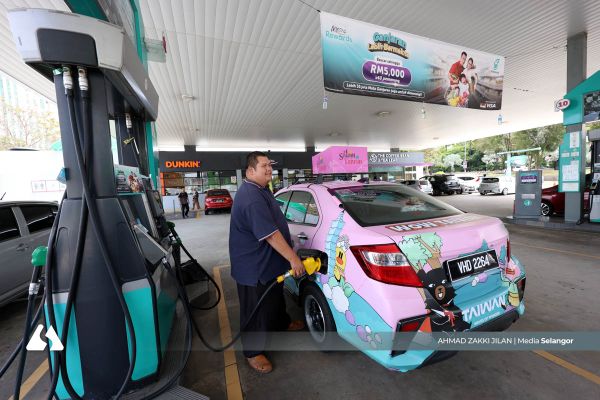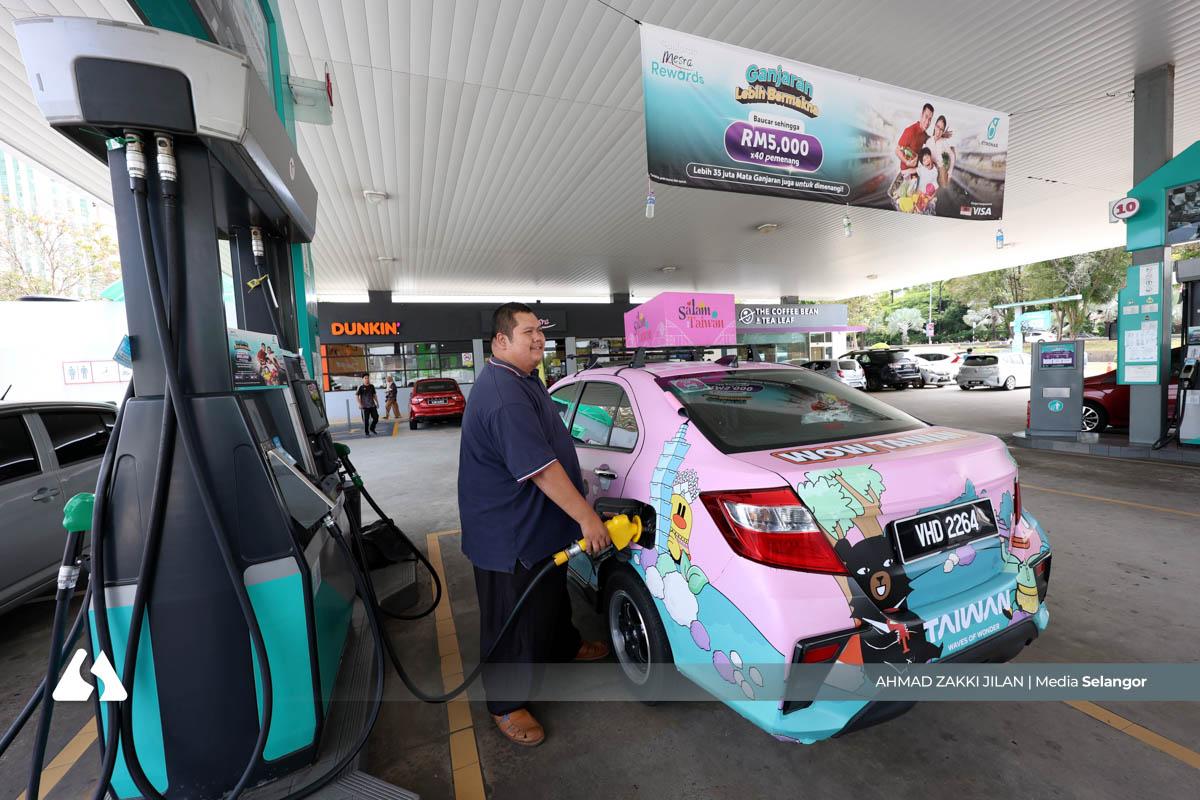KUALA LUMPUR, Nov 4 — The government has agreed to raise the fuel quota under BUDI Madani RON95 (BUDI95) for e-hailing drivers to 800 litres per month, subject to prescribed travel conditions.
Prime Minister Datuk Seri Anwar Ibrahim said the government made the decision after reviewing appeals from e-hailing drivers based on their fuel usage.
He said that as of October, the government had provided an additional quota for active e-hailing drivers by increasing the ceiling from 300 to 600 litres per month, which benefited 58,000 drivers.
“The government has also agreed for airport taxis to be included among vehicles eligible for subsidised RON95 under the Subsidised Petrol Control Scheme (SKPS),” he said during Minister’s Question Time in the Dewan Rakyat today.
Anwar was replying to a question from Syerleena Abdul Rashid (Harapan-Bukit Bendera) about BUDI95’s first month of implementation and measures taken by the government to address eligibility issues of taxi drivers, e-hailing drivers and riverboat users.
Anwar said that in October, 13.1 million Malaysians used the subsidised RON95, with an expenditure of RM2.6 billion, including about RM800 million in government subsidies.
He said the average amount of RON95 used by BUDI95 recipients last month was 98 litres, equivalent to 33 per cent of the 300-litre monthly quota for each recipient.
“Less than 0.7 per cent of BUDI95 recipients used up their monthly quota before the end of October,” he said.
He added that as of October 31, nearly 24,000 registered boat users without driving licences had been approved to receive BUDI95.
Answering a supplementary question from Syerleena on why the government decided to implement BUDI95, which benefits all Malaysian citizens, including the T15 group, Anwar said it was related to the implementation mechanism.
“When we want to define the T15 group, if we set the target at RM13,000 a month, then RM20,000 a month, it would still burden the upper-middle class. We could raise it to around RM50,000 a month, but that group is very small.
“From the enforcement standpoint, the cost of enforcement would be high. For now, our view is to proceed with the current implementation first, and if there’s a need in the future when the system becomes more robust, we can introduce refinements, especially for those who are genuinely high-income earners or own truly luxury vehicles,” he said.
Responding to a question from Datuk Awang Hashim (PN-Pendang) on the impact of BUDI95 implementation amid external pressures such as tariffs imposed by the United States on Malaysian goods, which indirectly increase transport and logistics costs, Anwar said the government is monitoring the situation.
“Although tariffs have been reduced, with many items, including semiconductors and palm oil, granted exemptions, we are still monitoring the cost impact. If costs rise, the government will review certain policies to ensure the people are not burdened,” he said.
Malaysia signed the Agreement on Reciprocal Trade (ART) with the US, which saw the average tariff rate reduced from 25 to 19 per cent, along with broader market access for the country’s key exports.




